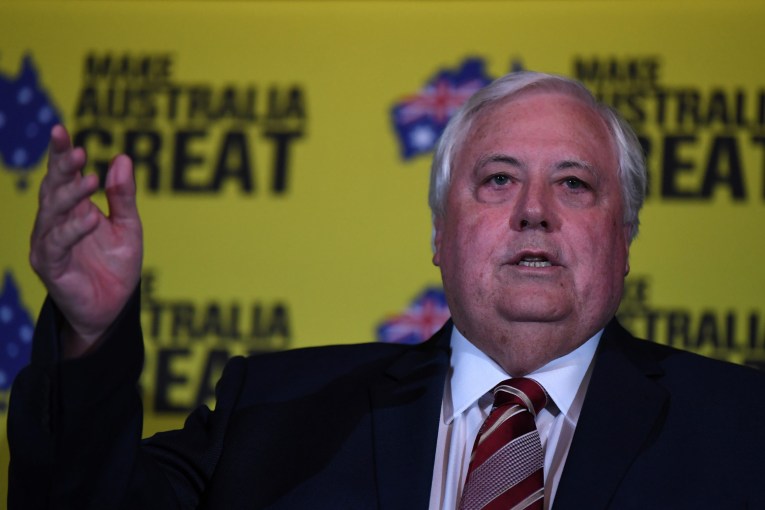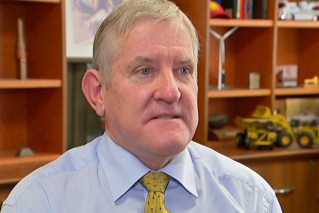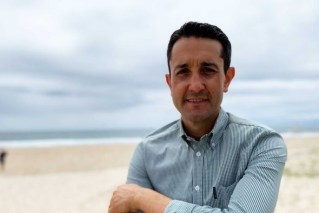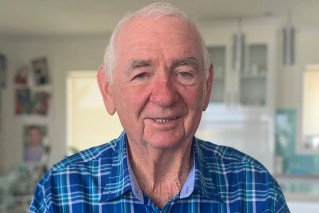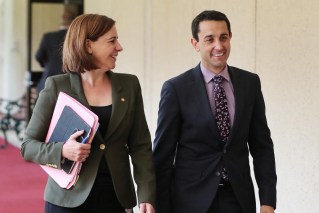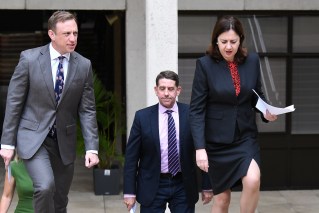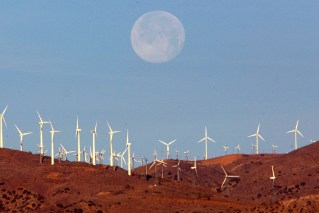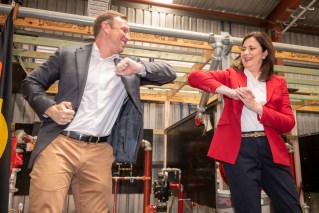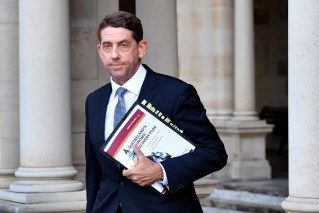How bad blood and one catastrophic decision spelled the end for Frecklington
A poisonous relationship with leaders of her own party – and a blind spot for high-vis voters – were a calamitous cocktail for Deb Frecklington’s electoral campaign, writes Dennis Atkins

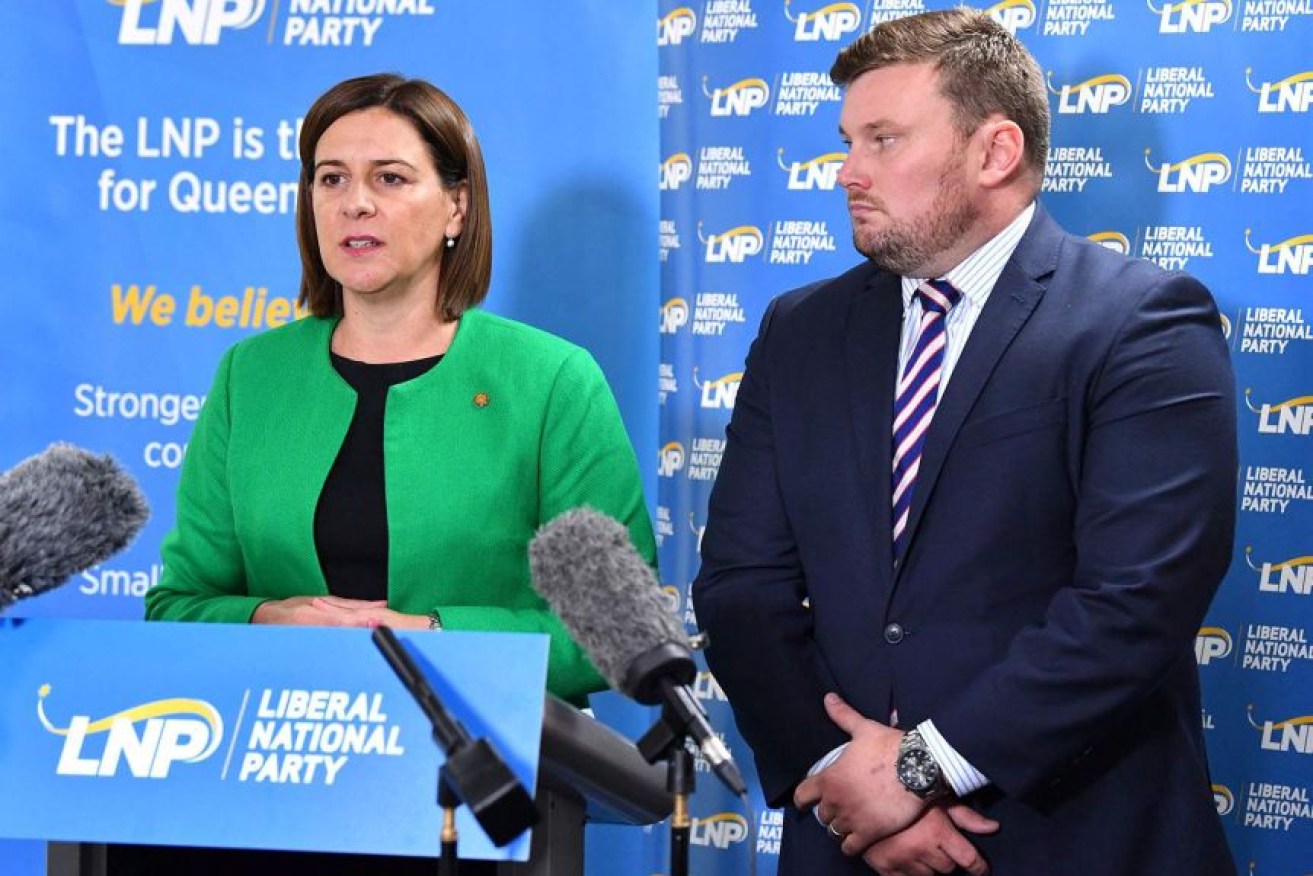
LNP president David Hutchinson resigned under pressure over his links to Clive Palmer and criticism of LNP Leader Deb Frecklington. (Photo: Darren England/AAP Image)
The bad blood between Deb Frecklington and her party’s state executive was so poisonous for most of this year, the now-outgoing LNP leader didn’t attend meetings of the administrative body until just before the state election kicked off.
Frecklington did turn up at the executive meeting the week before Parliament was prorogued, armed with a one-issue submission.
This was the plan to put Labor last on all how-to-vote cards (with the exception of the Greens-held seat of Maiwar, which the LNP wanted to win).
Frecklington argued this was the cleanest way to deal with questions of where preferences went – shaking off the perennial burden of arguments about where One Nation sat in the order.
The Frecklington plan was adopted but representatives from central and northern Queensland pushed back, saying it smacked of giving political succour to the Greens and would alienate workers and their families in the resources sector, as well as local communities.
This decision might have taken some heat out of the debate on One Nation preferences but it is now listed as a key reason for the LNP’s failure to win any seats from Labor.
It is also a key piece in the puzzle about why the resources sector – and coal in particular – didn’t play a significant role in the state election.
Queensland LNP Senator Matt Canavan – who was pivotal in stirring up antagonism towards Labor over coal during the 2019 federal election – worked hard to reprise that campaign against the ALP but failed to get any traction.
Canavan is warning the LNP – and the federal Coalition – not to take the “hi-vis vote” for granted.
“The hi-vis vote is colour-blind, they don’t go team red or team blue, they’re always up for grabs. The Bob Brown, Bill Shorten and Adani 2019 lightning storm won’t strike twice,” he said at the weekend.
Some thought this lightning would strike again during the state campaign but it didn’t happen. Just why is a fascinating sub-plot of this tale of Election Queensland 2020.
Palaszczuk was told soon after the federal poll in 2019 she had to neutralise issues around the massive Adani Carmichael coal mine in the Galilee Basin.
State Labor was seen as part of the problem because of environmental hurdles set for the company and a foolish comment by former deputy premier Jackie Trad that miners would have to “re-skill” while thermal coal mining was wound down.
Palaszczuk moved quickly, grabbing one of those hi-vis vests on the way out the door, and backed the mine.
Just before the campaign, Adani organised a media tour of its mining operations, pronouncing the Carmichael venture up and running and cheering the creation of jobs.
The Adani company was dismissive of the attitude of the Palaszczuk Government, moaning that no minister had bothered to visit the development. However, in the end, this made-for-media opportunity was a gift for Labor.
To people in Central and Northern Queensland, it signalled the Adani mine was no longer a political issue. These same voters were happy there were jobs on the ground and more on offer.
Palaszczuk and her former mines minister Anthony Lynham did a tour through resources communities and announced support for new mines and other things on the mining sector’s wishlist.
In places such as Rockhampton, Maryborough and Mackay, Labor made big announcements on manufacturing and engineering industries. It was a blue-collar response to the other side of the pandemic coin – economic security in the aftermath of the virus recession.
One mining group, New Hope, tried to create an Adani Mark II. Their New Acland mine to the northwest of Brisbane has been stalled in the courts for years and is still awaiting a High Court appeal to play out.
Despite some high-powered consultants and expensive polling, New Hope didn’t get lift-off for their campaign and now have few friends in the re-elected government.
It’s also worth noting how the other side of the 2019 Adani lightning strike played coal politics this year.
While Bob Brown poked the mining communities in the eye with his counterproductive convoy from the east coast metropolitan suburbs to Clermont in Central Queensland, the Greens in this state election changed tack.
They didn’t push a case to shut down coal mines, opting to suggest swingeing hikes in royalties to pay for welfare and community-based services.
State Labor managed to inoculate itself from the kind of attacks that worked against the federal party 18 months ago. While the strong support for the Government’s handling of the pandemic provided a foundation for the ALP’s electoral strategies, hugging the communities that had revolted against Bill Shorten last year was the key to success.
There was a price to pay in inner-city Brisbane as the Greens scooped up environmentally driven voters but the calculus provided far greater dividends in Central and North Queensland.
Federal Labor politicians are looking closely at what happened in how coal and mining played out in the Queensland poll. There is plenty to study.
